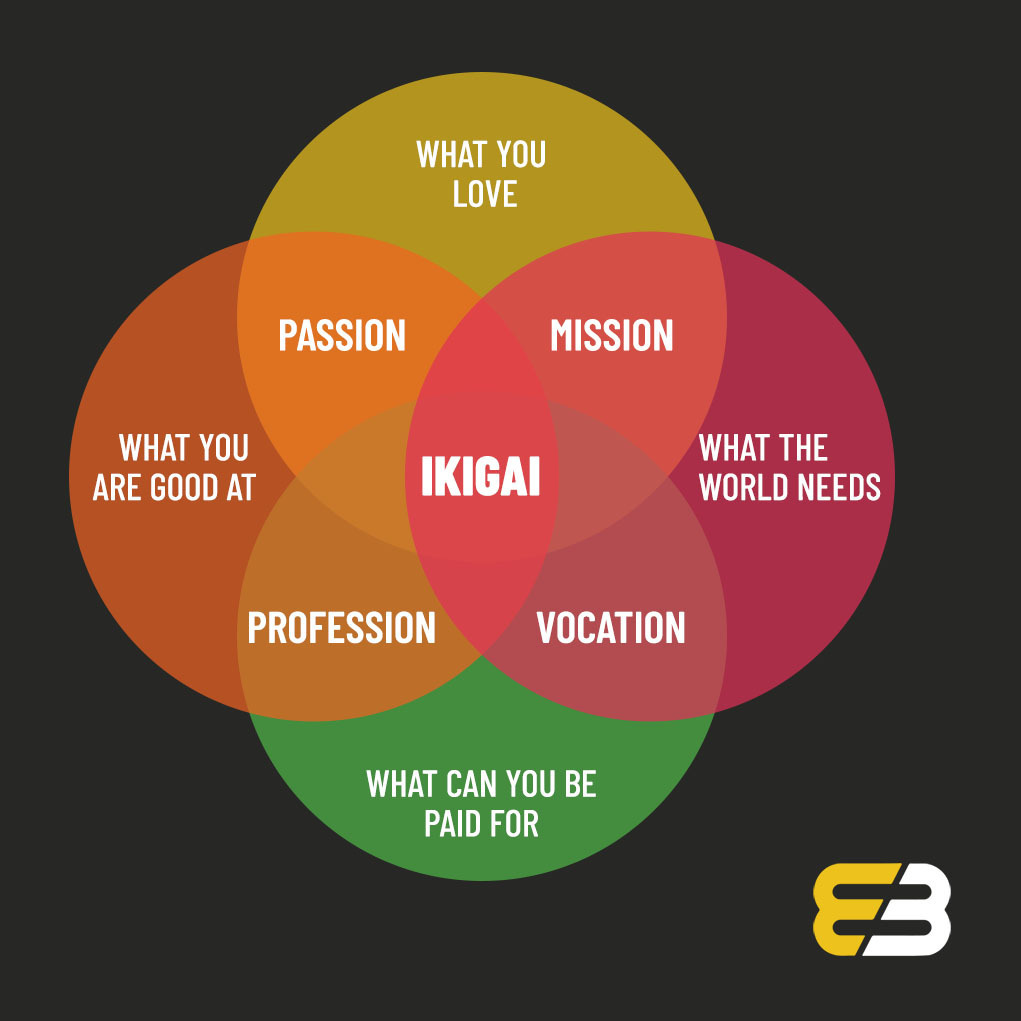Staying in touch with your ikigai during the pandemic
26 May 2020 — Written by Mihika Shankar

If you were asked about the most important task on your mind during the lockdown, chances are, you will think of ensuring the well-being of yourself and your loved ones. Your checklists will most likely contain essentials and healthcare supplies and your daily routines could well be overshadowed by mundane chores. Rewind to a year ago and your response to the same question would be starkly different: you would be pouring your heart and soul into a pursuit that brings you true happiness. What is it about a pandemic that has most of us putting our passions on hold to secure our own existence in the world? Maslow’s hierarchy of needs could hold the answer. According to this famous theory, it is only after our physiological needs (air, water, food, shelter, clothing, reproduction) are met, that we can pursue higher needs such as safety, love and belonging, esteem and self-actualization. It makes sense then, that as we grapple to have our physiological needs met in adverse times like these, we lose sight of our ikigai.

Those of us who have been enamoured by the concept of ikigai, know that this simple Okinawan way of life is essentially, ‘our reason for being’ or what we need to get us out of bed each day. It is the very purpose of our lives, it is what we are good at, it is what makes us happy and it is what we can offer to the world. What is a young learner to do, when the very source of his or her drive becomes close to obsolete?
In the previous episode of Out of the Box with Beyond 8, we invited Akanksha Thakore, founder of Ripple Effect, to share her perspectives on keeping our ikigai alive and reap the benefits of an elevated way of life, even in the troubling times we live in. If you missed it live, we have rounded up the best takeaways for you:
Build the muscle of mindfulness
As unappealing as domestic chores during the lockdown may sound to a majority of us, Akanksha believes they could be the starting point for exercising mindfulness. These activities compel us to be present in the moment and allow us to consciously delve into the activities that spark joy in our lives. The more we train the ‘mindfulness muscle’, the stronger it becomes and the better it serves us in reaching closer to our ikigai. Lastly - however busy we may be while locked down, it is important to take out at least 30 minutes each day to give time and energy to the activities that bring us fulfilment.
We have an opportunity to shape the new normal
In her own experience, Akanksha observes those who accept the lockdown are doing far better than those who resist. Acceptance is powerful and allows us to move with the flow and focus only on aspects we have control over. For the education ecosystem, the pandemic can be a golden opportunity to re-think and re-shape the new normal to better serve our learners. As one of the participants of the session noted, this could be the time examinations can finally be centred around the learners’ ikigai. It could be the time we did away with ‘measuring a fish by its ability to climb a tree’, as Einstein famously quipped. Great possibilities await when we allow children to disrupt the norm and go after their ikigai and allow them to be of use to the world.
It is perfectly alright to not have an ikigai for a while
While there is no greater satisfaction in knowing your ikigai could potentially solve a problem or make a difference in someone’s life, we must also make peace with the temporary absence of ikigai. We are all human and it is instrumental to our well-being to embrace the human side of ourselves. It is all too natural to have a lull in our lives every once in a while, and it lends itself to deep introspection. As Akanksha puts it, our ikigai need not always be gargantuan in proportions to be of value. They could be as small as making somebody smile or reading a poem before bed. The key is to hold the world lightly and understand that fostering our ikigai as a continual process, rather than a finish line that needs to be sprinted towards. It is only when we rid ourselves of the grand expectations we have of ikigai, that we can truly enjoy it for the simple pleasures it brings into our lives.
Young learners everywhere will realize that being in tune with their ikigai brings the focus back on what they are good at, rather than on the opposite. It is only when we do something that we are good at, that we are intrinsically motivated. The more we see our role models who are riding high on their ikigai, the more we will be inspired to sharpen our own ikigai and get better at it. The hope is that through this pursuit of happiness, we will begin to view themselves as happier, brighter and more productive individuals who can make life enriching for themselves and others around them.
Catch the entire discussion on our YouTube channel and feel free to write to us your questions in the comments section.
On our next episode of Out of the Box with Beyond 8, we will be in conversation with Zubair Junjunia, Founder of ZNotes, on how to eliminate rote learning and re-train yourself to be a learning machine. Join us live at a new time, on Friday, May 29th at 4 PM on our Facebook page for an energizing session.
About Out of the Box with Beyond 8
Be it the way we learn or teach, there are always better ways to do it and often they lie out of the box, on the paths less taken. Out of the Box with Beyond 8 is an initiative that encourages the education fraternity to push the boundaries and challenge the status quo.